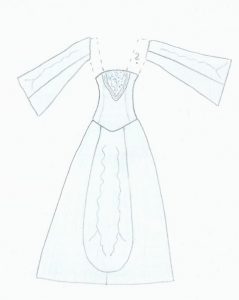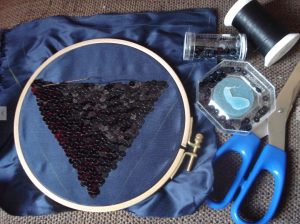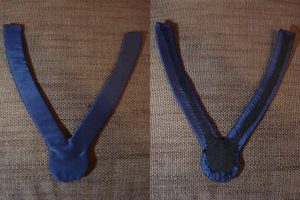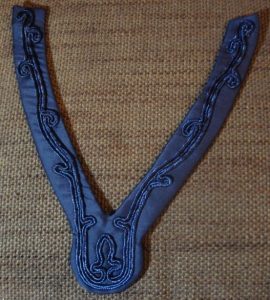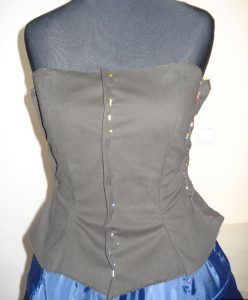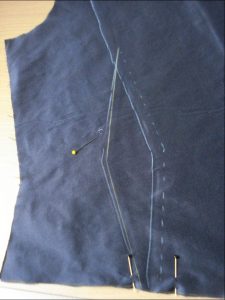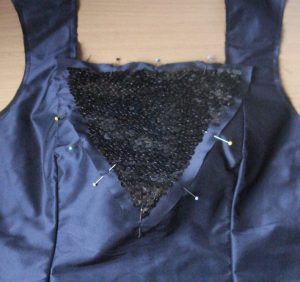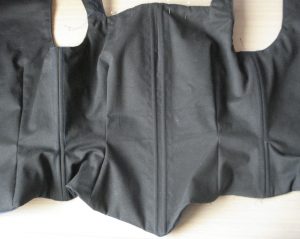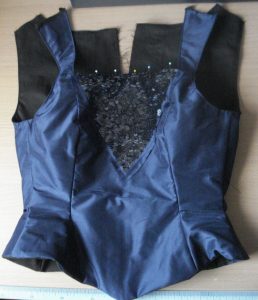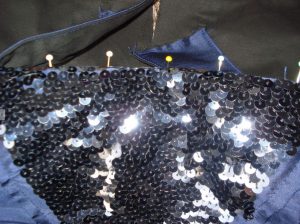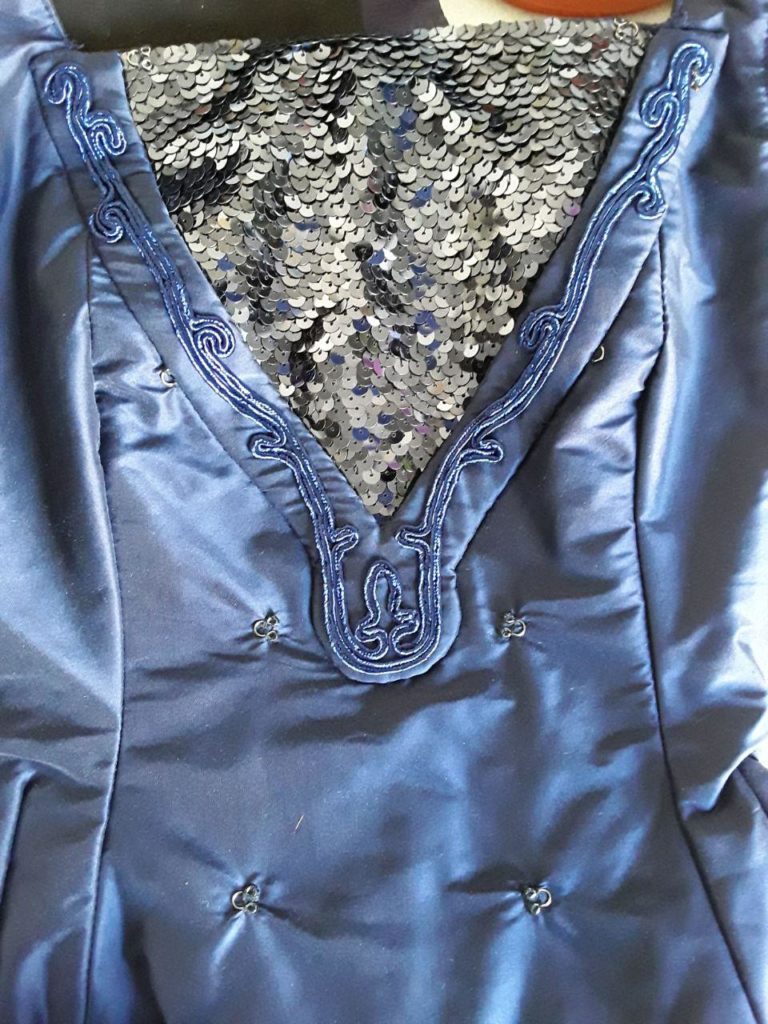Page 4: Bodice
Now it is time to make the second layer. This will be the first to be seen. It contains a skirt, the tabard, embroidered sleeves and a bodice, all made of blue silk taffetta. However, most of this part cannot be seen, because Padme wears her velvet coat all the time. Therefore, it is hard to tell the pattern of the bodice. In the end, I constructed it like a corsage.
Part 1: Sequin Front
The part that can bee seen is dominated by a triangle covered with sequins. I constructed it separate on an embroidery frame. However, i could only use this fort he first part of the process. It was too small for the upper part. You can see a photo of the making-of process below. For all of the sequined areas, including this one, I used two packs of sequins, made by Gütermann in the color 6805. The sequined part on the bodice almost took one package.
Part 2: V-shaped Part
Next tot he Sequins, a V-formed part is sewn onto the bodice. Ist ornamentation is similar tot he ones used on the tabard and the sleeves. Therefore, I am a bit worried, because it took almost three hours to do this little one and the others are far larger.
Since the pattern did not fit on one of my embroidery frames, I had to find another way to secure it while doing the embroidery. So I decided to make a thick base instead. I could find some Polyester felt and cut it into the main shape. Afterwards, I covered it with silk taffetta.
In the next step, I could do the embroidery by hand. I did not use the technique, that Kay-Dee suggests was used in the movies, but something called soutache. I do not know whether this term exists in English, too, but it means two cords covered and sewn together with thread. All in all, I buyed two packages, each of which contains 35 yards. They are rather blue and 4mm / 0.157 inch wide. Since they are made of Viscose, I can secure the endings by smelting it with some fire.
Part 3: Bodice
As mentioned above, you cannot determine the cut of the bodice due to the upper layers. Therefore, I made a bodice pattern, but had some problems during the fitting:
Finally, I decided to draw a second pattern based on Tudor fashion, but fitted to the corset shape. However, the silk had a small ugly spot next to the side front seam. Since I did not want to cut the whole piece a second time, I decided to separate the front from the side and cut the side new. To immitate the new seam on the other side, I made a very narrow one, that was not necessary for construction, so that both sides looked equal.
In the next step, I could sew the sequin piece to the bodice.
In order to prevent the silk from stretching, I did sew twill to it and handled everything as one layer. I made a second layer out of the twill, where I could put the tunnels for the cable ties.
Both layers were sewn to each other in the next step. I did also make an additional seam to secure the fabric on the armscye.
However, the sequins disliked this method, because the did not want to stay on the fabric. This can be fixed with some handstitching.
All left to do on this piece was adding a closure. I wanted to use a lacing due to the mentioned problems with my changing measurements. However, the silk would not like to be opened at this point and the lining, which was doubled here, did not want to be handstitched, too. Therefore, I had no choice but to use metal grommets. They are not very beautiful, but do their job and cannot be seen anyway.
To link it to the coat, I added some hooks and eyes.
Back to the Senate Main Page
Back to Page 3
Further reading: Page 5
